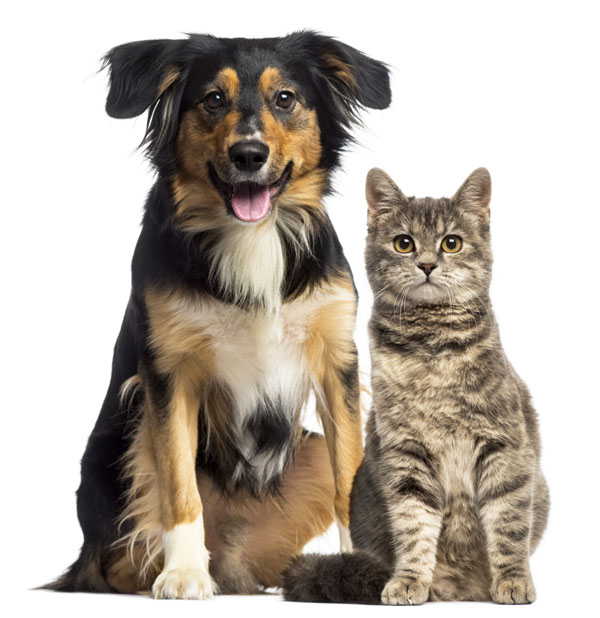Thanks to modern medicine, our pets are also enjoying longer, healthier lives. If your pet is gearing up for retirement, there are a few things to keep in mind to make sure their senior years are spent happy and healthy.
Your Pet’s Age
While the exact age of when your pet reaches his or her geriatric years varies with species, breed and size, there are a few things to take into consideration. In general, cats will reach their geriatric years much later than dogs.
Cats reach maturity at around 7 to 10 years of age and are considered seniors at 11 to 14. Geriatric years tend to come at 15 and over. For dogs, the average senior age is from 7 to 10. This depends greatly on breed size as small breeds may only be in middle age at 7 while large breeds can reach old age at 6.
Caring for Your Senior Pet
Comfort every step of the way.
 Veterinary Visits – As age-related diseases can creep up without warning, vet visits become more important as your pet ages. If your vet has a detailed record of your pet’s health, it’ll be easier to identify changes as they reach their geriatric years. Try to schedule a visit with your vet every six months.
Veterinary Visits – As age-related diseases can creep up without warning, vet visits become more important as your pet ages. If your vet has a detailed record of your pet’s health, it’ll be easier to identify changes as they reach their geriatric years. Try to schedule a visit with your vet every six months.
Healthy Diet – Senior pets are generally less active, so they’ll require a lower caloric intake. Try feeding your pet high quality foods specifically for aging pets while limiting portion sizes. If your pet suffers from joint pain or related issues, ask your vet if supplements are a good addition to their diet.
Active Routine – Just like humans in old age, pets are highly susceptible to joint-related diseases like arthritis. Maintaining an active lifestyle, both physically and mentally, will help your pet remain healthy through his or her senior years. When taking them out for a bit of exercise, always keep an eye out on their condition. Older dogs will tire faster and require more water.
Dental Maintenance – Monitoring your pet’s dental health goes a long way in the prevention of other diseases later in life. Part of your veterinarian check-up should include a thorough evaluation of your pet’s teeth, and you can do your part by cleaning them early on.
Provide Accessibility – If blindness, hearing loss, arthritis, obesity or any other condition is affecting your pet’s health, make sure to build an environment that is both safe and easily accessible to them. Avoid excessive exercise and changing the locations of things your pet uses regularly so that they are always familiar with their surroundings. Consult your vet about the latest treatments and therapies available to alleviate any pain and discomfort he/she may be feeling.
Pampering Your Pooch – Showing your affection is a crucial part of your pet’s happiness as they age. If you think your pet is needy now, just wait until he or she reaches their geriatric years. Make sure to bond with them as much as possible to ensure they feel comfortable every step of the way.
Symptoms to Look for in Your Senior Pet
Don’t wait until it’s too late. If you notice any unusual symptoms in your pet, schedule an appointment with our veterinarian. Here are some symptoms to look out for:
- Loss of Bladder Control
- Lumps
- Constipation or Diarrhea
- Shortness of Breath or Coughing
- Weakness and Fatigue
- Unusual Discharges
- Weight Gain or Loss
- Stiffness or Limping
- Behavioral Changes
